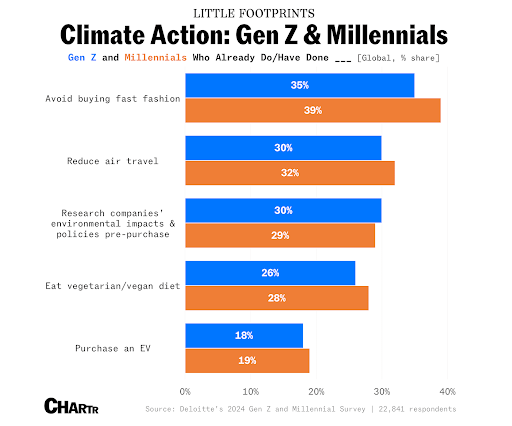Issue 196: Apple's AI Revolution is Coming For Your Devices
Welcome to Backstory, a weekly newsletter turning global technology shifts into a three-minute read. This week, we’re thinking about practical artificial intelligence.
THE BIG TAKE
Apple's AI Revolution is Coming For Your Devices
At Apple’s annual developer conference this week, the company unveiled a new approach to artificial intelligence that promises to impact a vast number of users by integrating AI into everyday tasks life never before. By embedding sophisticated AI capabilities into widely-used products like the iPhone and services like Messages, Apple aims to enhance user experience, making daily activities more efficient and personalized. This democratization of AI ensures that cutting-edge technology is accessible to a broader audience, potentially revolutionizing how people interact with their devices. But it’s the company’s approach to privacy that could really shake things up.
New contract for users. Apple's focus on security and privacy sets it apart from other companies in the AI landscape. The company promises to ensure privacy with its AI products by implementing on-device processing, minimizing data sent to the cloud, and using advanced encryption to protect user information. By prioritizing these aspects, Apple ensures that user data remains protected and usage remains ethical. This approach not only builds trust among users but also sets a new standard in the industry. As a result, we may see a ripple effect, with more companies adopting similar ethical standards, leading to more responsible AI development across the board.
Spreading AI from the Middle East. Meanwhile, the Gulf region, particularly the UAE, is making significant strides in AI investment. Funds like G42 are spearheading initiatives that push AI frontiers, particularly in emerging markets like Africa. These investments are poised to drive innovation and economic growth, highlighting the region's commitment to leading in AI advancements. Taken together, these developments mark a transformative moment in the AI landscape, with widespread implications for global technology and economic dynamics. It was a big week for AI.
QUOTE OF THE WEEK
“I succeeded by saying what everyone else is thinking.”
- Joan Rivers
CHART OF THE WEEK
This week, we are thinking about climate change. Younger people appear to be turning their words into action when it comes to taking steps to mitigate their role in climate change. But is it enough?
SPOTTED ELSEWHERE
Screen time before bed. One of the central rules of the healthy use of technology is limiting screen time before beds, right? Well, maybe not. According to some new research, the blue light coming from our devices might not be so bad. In fact, according to a slew of new studies, it's less about the blue light itself and more about how we engage with technology. Engaging content can disrupt sleep patterns more significantly than any amount of blue line. This suggests that a critical review of what we consume online before bedtime is essential, rather than merely dimming our screens. But a good rule of thumb is to exercise moderation in consuming blue light close to bedtime.
New approach to failure. The romanticized notion that failure is a great teacher is under scrutiny, revealing a more complex truth. New research suggests that an overly optimistic view of post-failure resilience can have unintended negative consequences. By overestimating individuals' ability to bounce back from setbacks—ranging from failed tests to business—society may be less inclined to provide necessary support, assuming these challenges will self-resolve. But there is a solution. When these optimistic biases are corrected, people's willingness to help increases, underscoring the need for a more realistic appreciation of the challenges following failure. This stimulating research prompts a critical reevaluation of how we perceive failure and resilience. It’s all about achieving a healthy balance.
QUICK HITS
The Ozempic effect.
Sonic booms across California.
A work of science fiction about science fiction.




